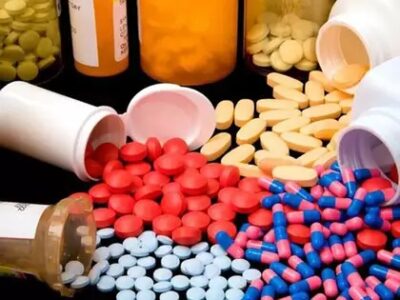Nigerian pharmaceutical companies have reported a significant surge in revenues, recording a 58% increase, driven by soaring prices across the sector. This remarkable revenue boost reflects the industry’s adaptation to rising costs and escalating demand for essential medicines amid ongoing economic challenges.
The steep increase in drug prices has been attributed to various factors, including inflation, the depreciation of the naira, and the high cost of raw materials. These economic pressures have compelled drugmakers to adjust their pricing strategies to maintain profitability and ensure the continuous supply of medications to the market. For instance, the cost of imported raw materials has skyrocketed due to exchange rate fluctuations, directly impacting production costs and, subsequently, the prices of finished products.
Industry analysts note that while revenue growth is a positive indicator for pharmaceutical companies, it also highlights the burden on consumers who are grappling with higher healthcare costs. The price hikes have raised concerns about access to affordable medicines, particularly for low-income families and vulnerable populations. Reports indicate that the cost of some life-saving drugs has increased by as much as 30% in the past year, exacerbating the financial strain on patients and healthcare providers alike.
In response to the rising prices, the Nigerian government and regulatory bodies are exploring measures to mitigate the impact on consumers. Discussions are ongoing to find a balance that supports the sustainability of the pharmaceutical sector while ensuring that essential medicines remain accessible to all Nigerians. Proposals include subsidizing key medications, implementing price controls, and encouraging local production to reduce dependency on imported raw materials.
The revenue increase also underscores the strategic moves by drugmakers to expand their market presence and product offerings. Many companies have been investing in research and development, exploring new therapeutic areas, and enhancing their distribution networks to reach a broader customer base. Additionally, partnerships with international pharmaceutical firms have provided access to advanced technologies and best practices, further boosting the sector’s growth prospects.
As the pharmaceutical industry navigates these economic challenges, stakeholders emphasize the importance of strategic planning and collaboration to foster long-term growth and stability in the sector. The revenue increase underscores the resilience of Nigerian drugmakers but also calls for continued efforts to address the underlying issues affecting drug pricing and availability.
The coming months will be critical in determining how the industry adapts to these challenges and what measures will be implemented to safeguard public health and support the pharmaceutical sector’s growth trajectory. Stakeholders are optimistic that with the right policies and industry practices, the sector can continue to thrive while ensuring that essential medicines remain affordable and accessible to all Nigerians.
